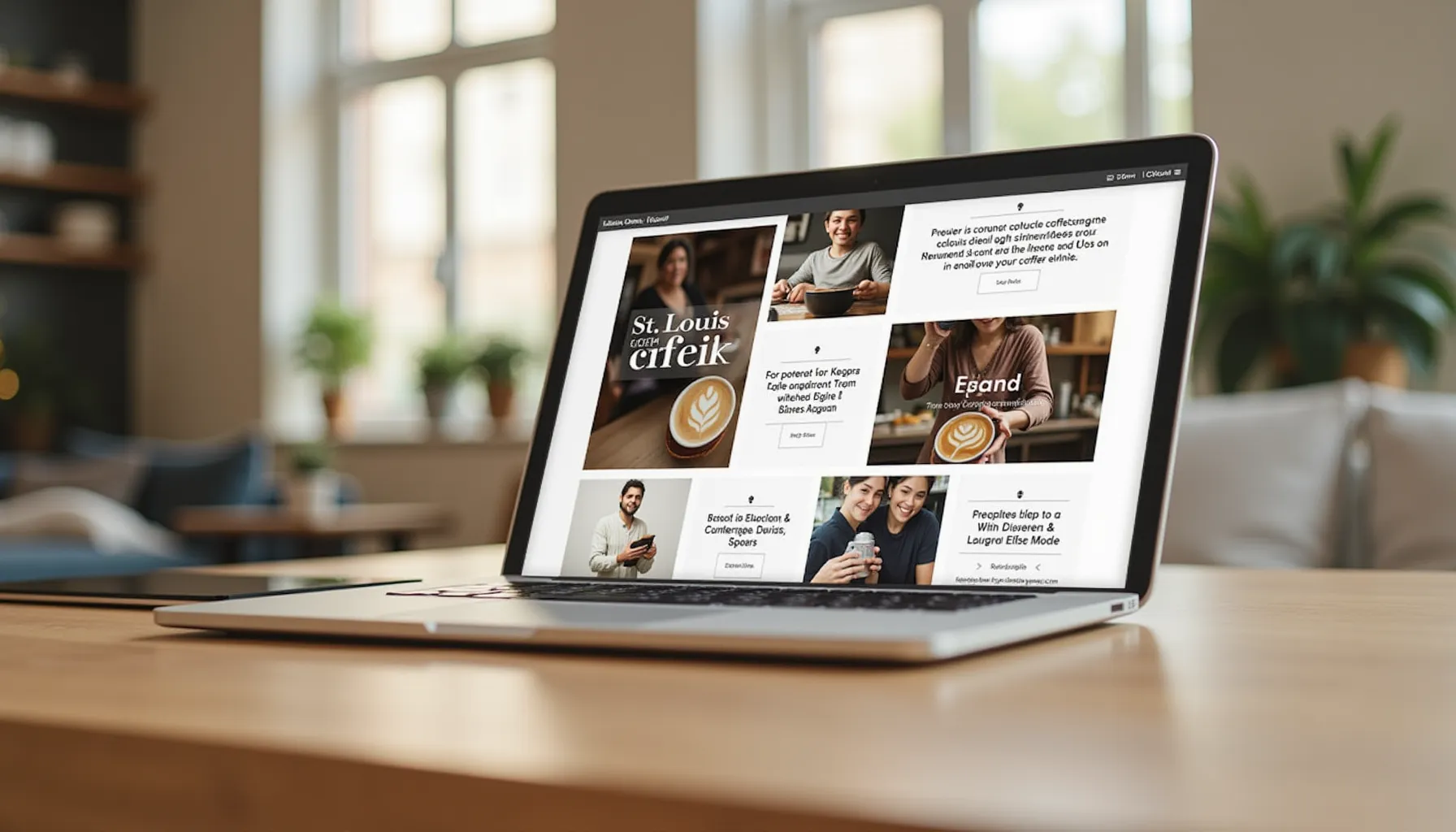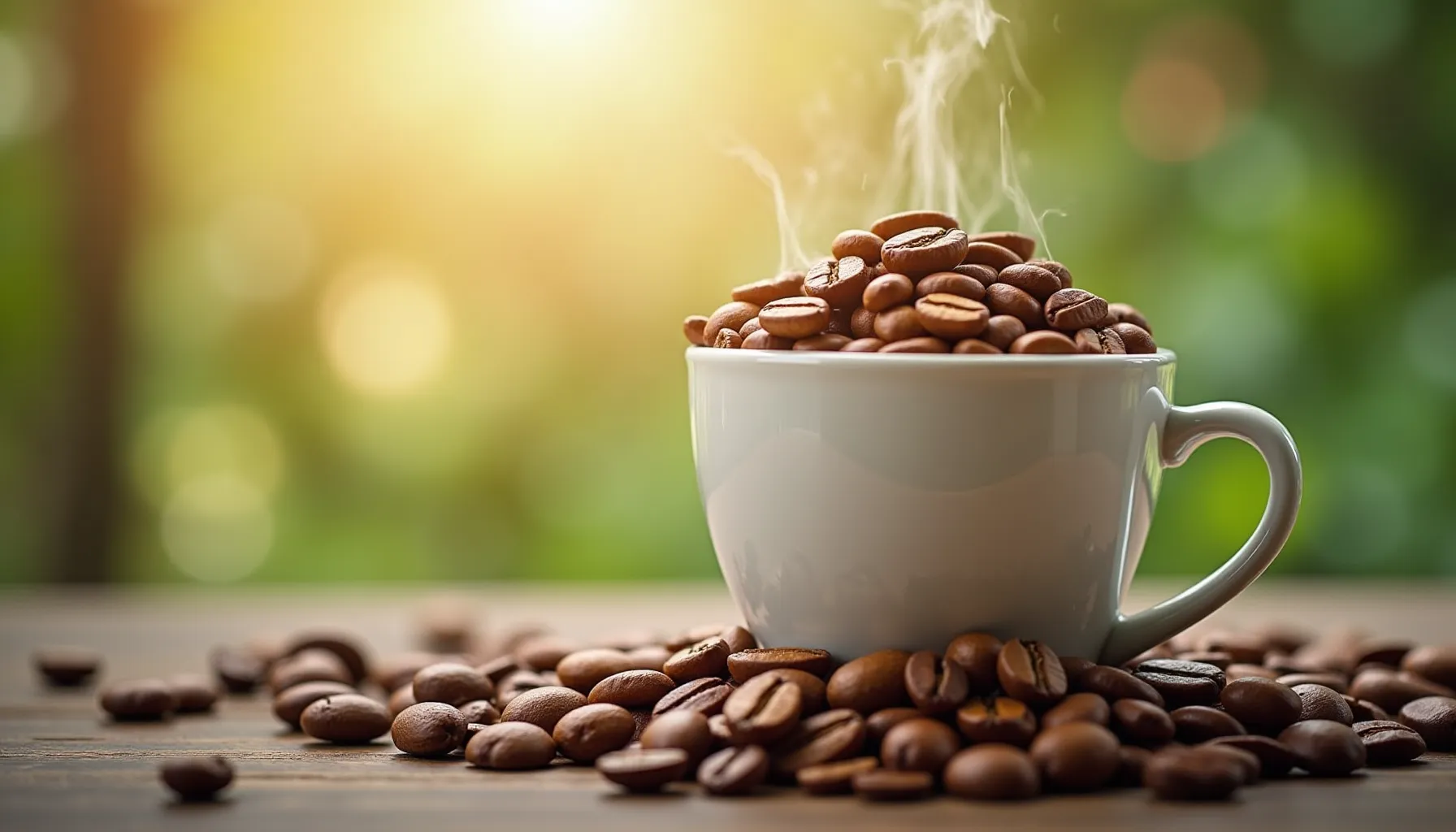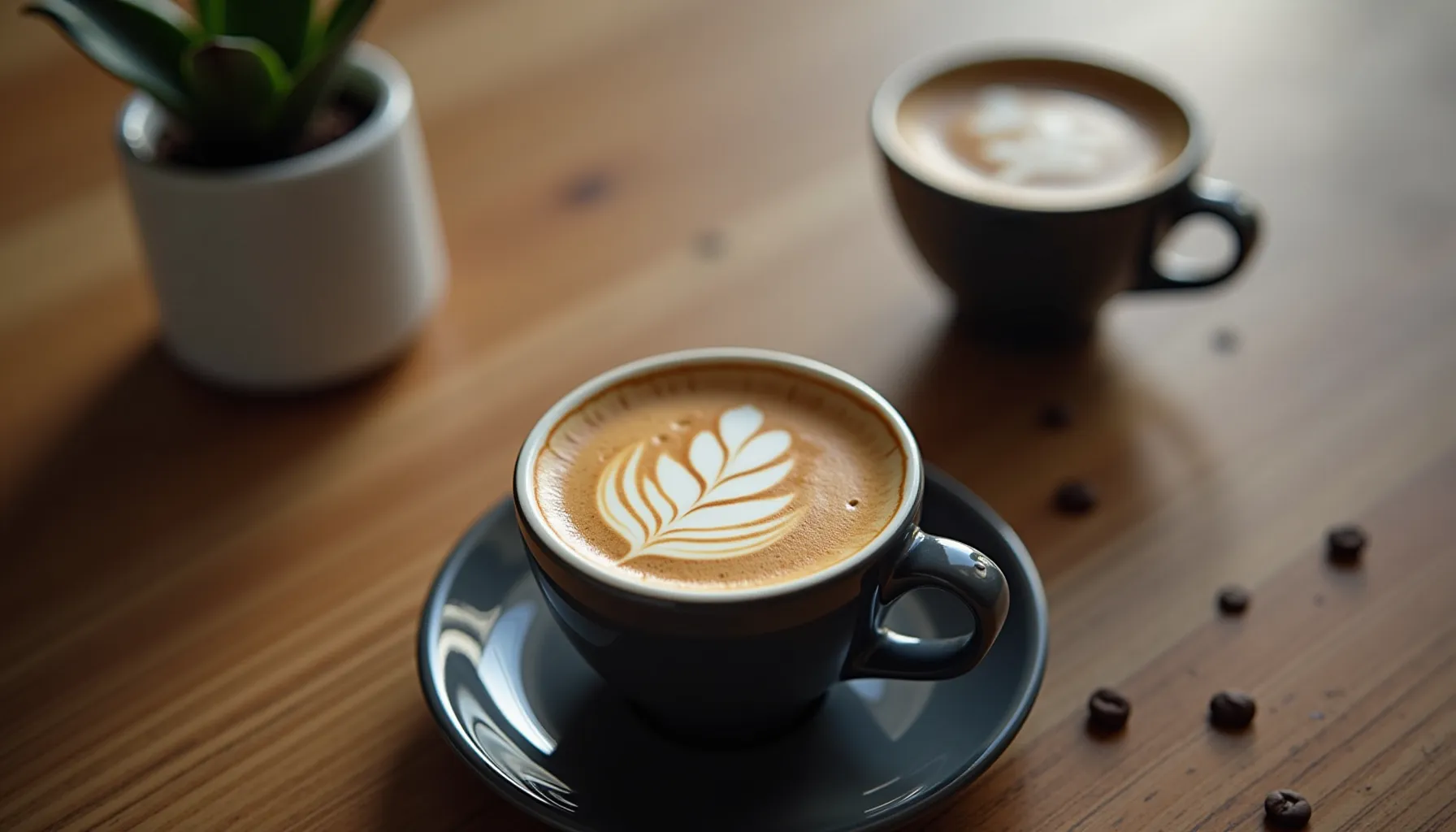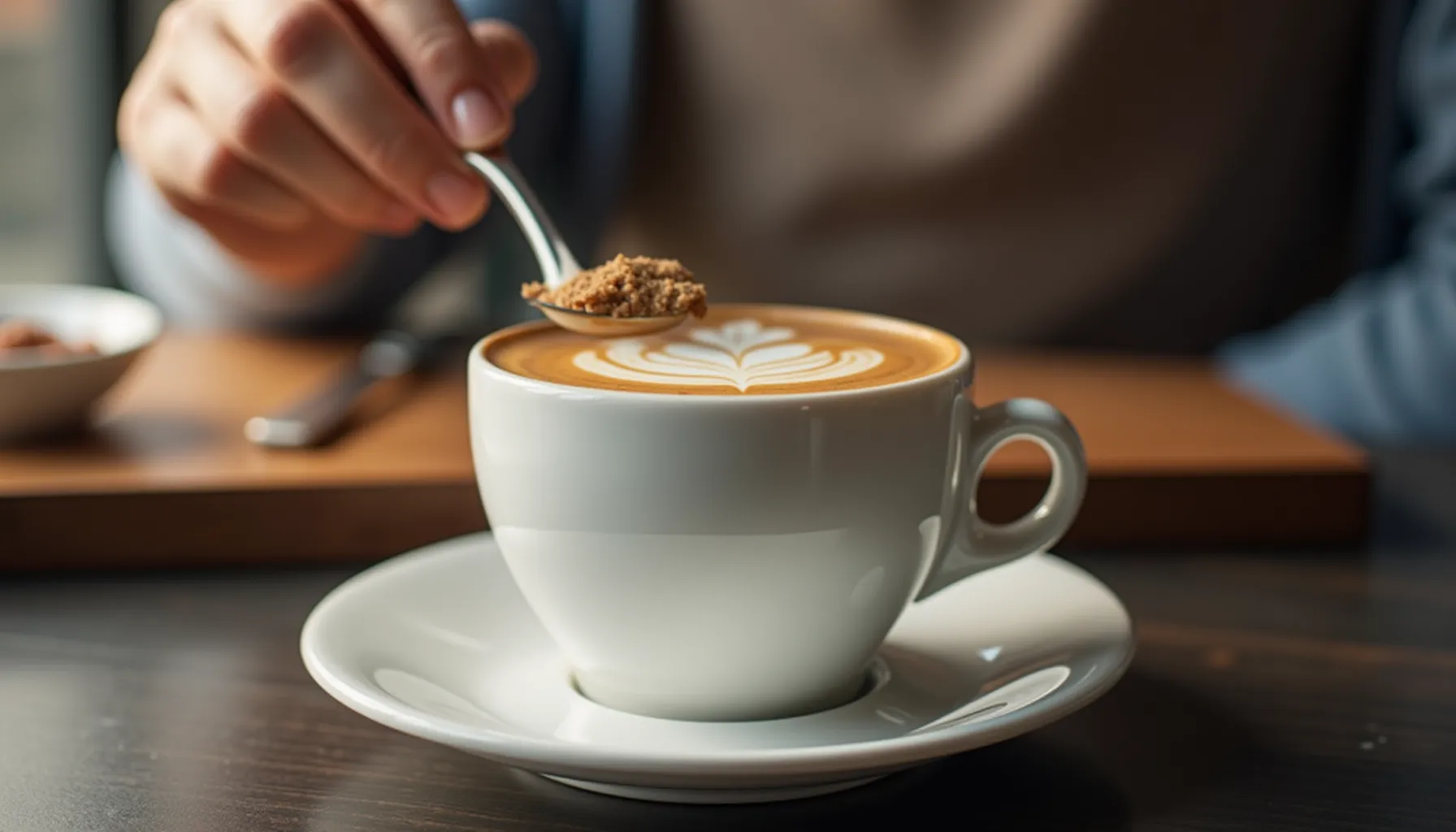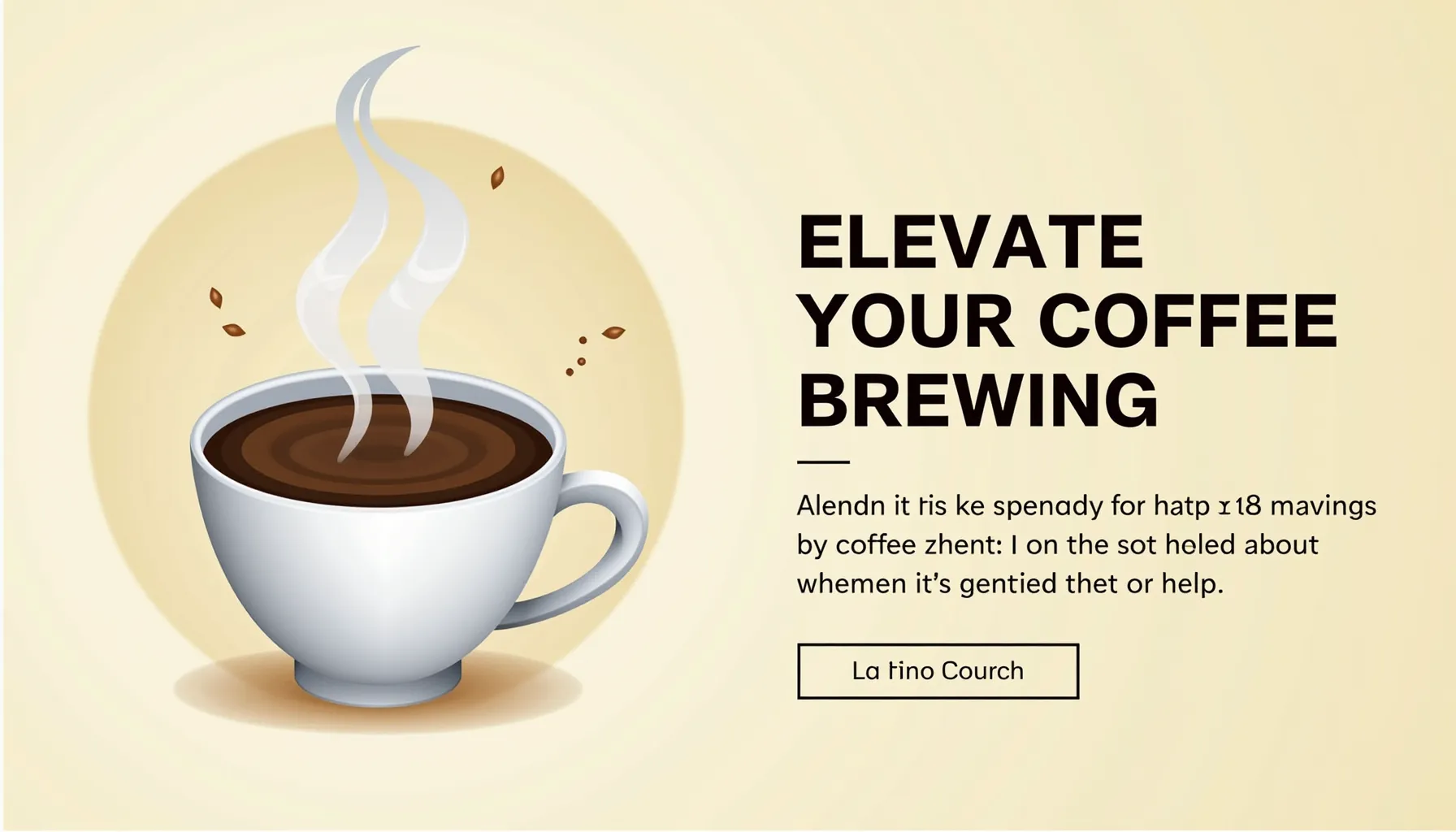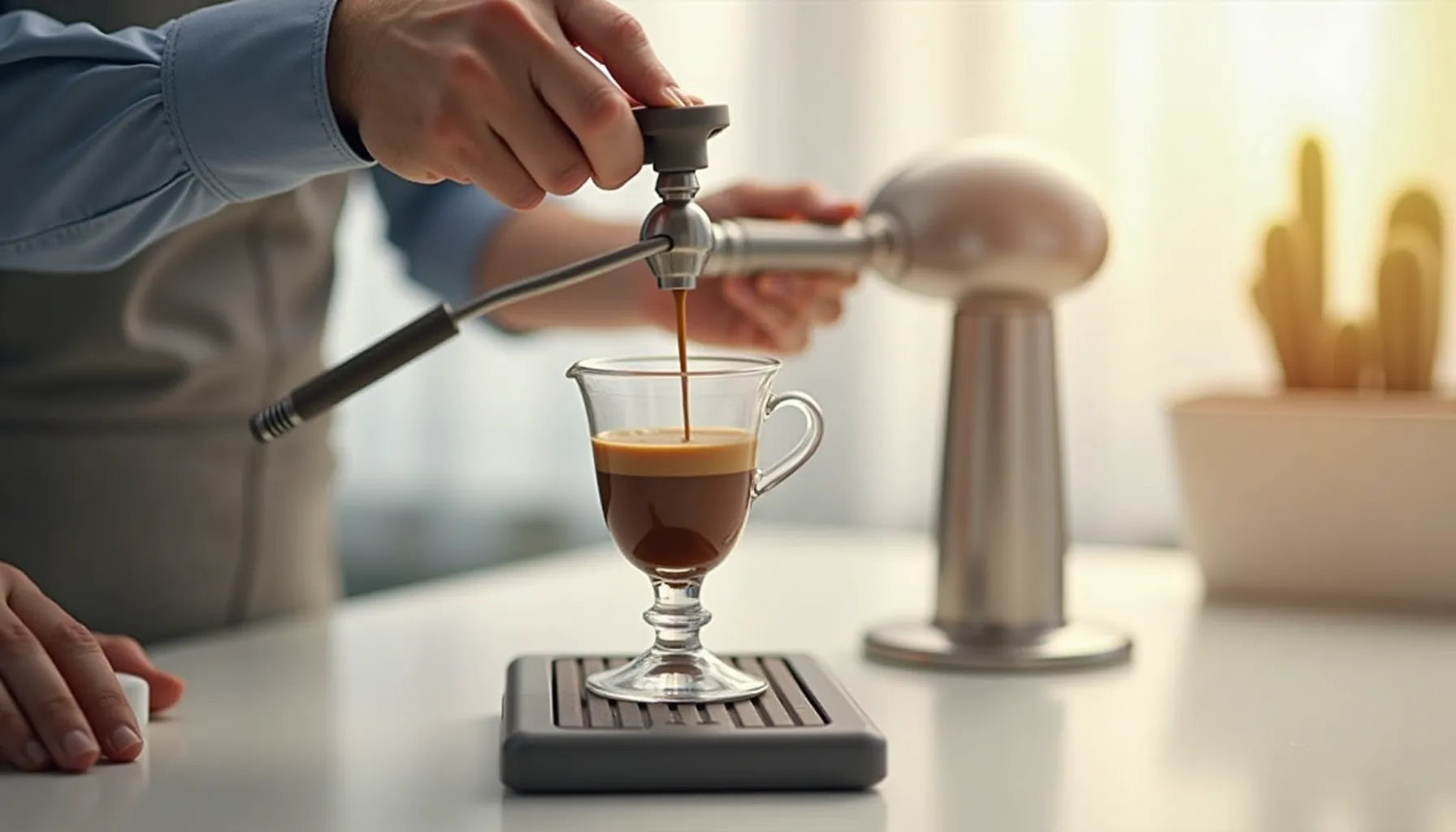Brazilian coffee stands as a titan in the world of caffeinated beverages, renowned for its rich, full-bodied flavor and the meticulous care that goes into every bean. From the sun-drenched plantations of Brazil to the bustling coffee shops across the
United States, Brazilian coffee has made a name for itself as a premium choice for coffee aficionados and casual drinkers alike. In this exploration, we delve into the essence of the best Brazilian coffee available in the U.S., uncovering the secrets that make each cup an experience to savor.
Key Takeaways
- Brazilian coffee is celebrated for its smooth, chocolatey notes and low acidity.
- Specialty coffee shops in the U.S. are increasingly sourcing their beans directly from Brazilian farms.
- Understanding the origin and processing methods of Brazilian coffee can enhance your appreciation and enjoyment of the brew.
Brazilian coffee is not just a beverage; it's a cultural icon, a symbol of warmth and hospitality that resonates with every sip. The journey of Brazilian coffee beans is a tale of tradition, innovation, and passion, culminating in the delightful experience that graces our cups. Let's embark on this aromatic voyage to discover why Brazilian coffee is so cherished and how to find the best Brazilian coffee in the U.S.
The Roots of Brazilian Coffee: A Legacy of Flavor
Brazil's dominance in the coffee industry is no accident. It's the result of a perfect storm of climate, geography, and dedication to coffee cultivation. The country's vast coffee-growing regions, such as Minas Gerais and São Paulo, offer ideal conditions for coffee plants to thrive. The beans grown here are often characterized by their nutty, chocolatey flavors, with a sweetness that is both subtle and profound.
Exploring Brazilian Coffee at Daterra Coffee Farm | European Coffee Trip
This video from European Coffee Trip takes viewers on a journey to the Daterra Coffee Farm in Brazil, showcasing the intricate process of coffee cultivation and the passionate individuals behind every bean.
The Art of Brewing: Brazilian Coffee in the U.S.
In the United States, Brazilian coffee has found a second home. Coffee shops and roasters across the nation prize Brazilian beans for their versatility and rich flavor profile. Whether it's a robust espresso or a smooth cold brew, Brazilian coffee delivers a consistent and satisfying experience.
The Cafezinho: Exploring Brazilian Coffee Culture | Starbucks Coffee
Starbucks Coffee presents a deep dive into the Brazilian coffee tradition of 'cafezinho', illustrating the intimate connection between Brazilian culture and its beloved coffee.
The Selection Process: Choosing the Best Brazilian Coffee
When seeking out the best Brazilian coffee in the U.S., it's essential to consider the beans' region of origin, processing method, and roast profile. Beans from different Brazilian regions can exhibit unique flavor notes, from caramel and chocolate to tropical fruits and nuts. The processing method, whether natural, pulped natural, or washed, also plays a significant role in the coffee's final taste.
TECHNOLOGIA's video offers a glimpse into the high-tech world of coffee harvesting in Brazil, revealing how modern techniques contribute to the distinctive taste of Brazilian coffee.
The Brewing Experience: Tips for Perfecting Your Cup
To fully enjoy the best Brazilian coffee, the brewing method matters. Whether you prefer a French press, pour-over, or espresso machine, each method can highlight different aspects of the coffee's flavor. Experimenting with grind size, water temperature, and brewing time can help you tailor the perfect cup to your taste.
The Social Impact: Beyond the Cup
Brazilian coffee is more than just a commodity; it's a livelihood for millions of Brazilians. The coffee industry in Brazil generates millions of jobs and is a critical component of the country's economy. By choosing responsibly sourced Brazilian coffee, consumers in the U.S. can support sustainable practices and fair conditions for workers.
The Future of Brazilian Coffee: Innovation and Sustainability
As the demand for high-quality coffee grows, Brazilian producers are continuously innovating to improve sustainability and bean quality. From reducing water usage in processing to experimenting with new varietals, the future of Brazilian coffee looks bright, promising even more exceptional brews to come.
The Sensory Experience: Tasting Brazilian Coffee
When you take a sip of Brazilian coffee, you're engaging in a sensory journey. The initial aroma is often rich and inviting, hinting at the flavors to come. Upon tasting, you may notice a range of flavors, from chocolate and caramel to subtle fruit undertones, depending on the region and processing method. The body of Brazilian coffee is typically round and full, providing a satisfying mouthfeel that lingers pleasantly.
The Connoisseur's Choice: Specialty Brazilian Coffees
For those looking to explore the upper echelons of Brazilian coffee, specialty coffees offer a unique experience. These beans are often single-origin, harvested from specific micro-regions known for their exceptional quality. Specialty Brazilian coffees are meticulously processed and roasted to highlight their unique flavor profiles, making them a favorite among coffee connoisseurs.
The Ethical Brew: Fair Trade and Organic Options
The rise of ethical consumption has brought fair trade and organic Brazilian coffees to the forefront. These options ensure that farmers receive fair compensation for their labor and that the coffee is grown without harmful pesticides. By choosing fair trade and organic Brazilian coffee, you're not only enjoying a delicious brew but also contributing to a more sustainable and equitable coffee industry.
The Home Barista: Brewing Brazilian Coffee at Home
Brewing Brazilian coffee at home allows you to become intimately acquainted with its nuances. Whether you're using a drip coffee maker, an Aeropress, or a stovetop espresso pot, the key to a great cup lies in the freshness of the beans and the precision of your brewing method. Grinding the beans just before brewing and using the correct water temperature can make all the difference in extracting the coffee's full flavor.
The Community Aspect: Brazilian Coffee Shops in the U.S.
Brazilian coffee shops in the U.S. serve as cultural hubs, offering a taste of Brazil's rich coffee culture. These establishments often provide a variety of Brazilian coffee preparations, from traditional cafezinho to modern espresso-based drinks. They also serve as gathering places for the community, embodying the Brazilian spirit of warmth and hospitality.
The Pairing Pleasure: Brazilian Coffee and Food
Brazilian coffee pairs wonderfully with a variety of foods. In the morning, try it with pão de queijo, a traditional Brazilian cheese bread, for a delightful combination. For an afternoon treat, pair it with a slice of bolo de rolo, a Brazilian roll cake, to complement the coffee's flavors. The possibilities for pairing are endless and can enhance your coffee experience.
The Health Aspect: Benefits of Brazilian Coffee
Coffee, in moderation, has been linked to various health benefits, and Brazilian coffee is no exception. Its antioxidants can help reduce inflammation and protect against certain diseases. Additionally, the caffeine in coffee can improve mental alertness and physical performance, making Brazilian coffee a beneficial addition to your daily routine.
The Economic Impact: Brazilian Coffee in the Global Market
Brazilian coffee plays a significant role in the global coffee market. As the largest coffee producer in the world, Brazil's coffee industry significantly impacts global prices and availability. The U.S., being one of the largest consumers of coffee, is deeply connected to Brazil through this trade, making the relationship between the two countries vital to the industry.
The Environmental Concerns: Sustainable Practices
As the demand for coffee continues to grow, so does the need for sustainable farming practices. Brazilian coffee farmers are increasingly adopting methods that protect the environment, such as shade-grown coffee, which preserves biodiversity, and water conservation techniques. These practices not only ensure the sustainability of the coffee industry but also result in a higher quality product.
The Future Trends: Innovations in Brazilian Coffee
The Brazilian coffee industry is constantly evolving, with new trends and innovations emerging regularly. From cold brews to nitrogen-infused coffee, Brazilian coffee producers and retailers in the U.S. are always looking for ways to excite and engage consumers. As we look to the future, we can expect Brazilian coffee to continue to adapt and thrive in the global market.
As we reach the end of our exploration into Brazilian coffee, it's clear that this beloved beverage is more than just a morning pick-me-up. It's a rich tapestry woven from the threads of history, culture, and innovation. The best Brazilian coffee in the U.S. is not just about the quality of the bean; it's about the stories it tells and the communities it builds.
Brazilian coffee invites us to slow down and appreciate the moment, whether we're enjoying a quiet morning at home or a lively conversation in a coffee shop. It encourages us to connect with others and share in the simple pleasure of a well-crafted cup. As we look forward to the future of Brazilian coffee, we can be sure that its journey will continue to inspire and delight us for generations to come.
Frequently Asked Questions
-
What makes Brazilian coffee unique compared to other coffees? Brazilian coffee is known for its smooth, chocolatey flavor profile with low acidity, making it a versatile choice for various brewing methods.
-
How can I ensure I'm buying the best Brazilian coffee in the U.S.? Look for coffee that lists the region of origin, has a roast date, and, if possible, choose beans that are single-origin and from reputable roasters.
-
Are there fair trade and organic Brazilian coffees available? Yes, there are many fair trade and organic options available, which support sustainable farming practices and fair compensation for farmers.
-
Can Brazilian coffee be used for espresso? Absolutely, Brazilian coffee is often favored for espresso due to its full body and ability to produce a rich crema.
-
What are some traditional Brazilian foods that pair well with Brazilian coffee? Brazilian coffee pairs well with sweet and savory items like pão de queijo (cheese bread), bolo de rolo (roll cake), and various pastries.




